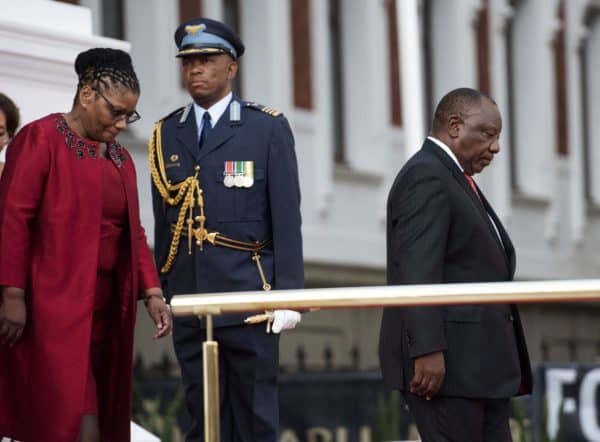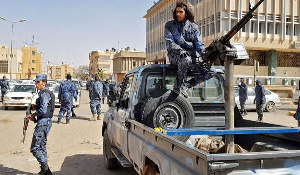‘I don’t get scared of anything’ – Aliko Dangote on his mission to build Africa’s largest oil refinery

Over the past eight years, Aliko Dangote, Africa’s richest man, has built one of the world’s largest oil refineries. Spanning nearly 4,000 football fields, construction of the refinery began in 2016 at the Lekki Free Zone outside of Lagos, Nigeria, and it opened in May 2023. Dangote’s company says the plant will have the capability to produce 650,000 barrels per day once fully operational.
Nigeria is one of Africa’s largest oil producers, yet the country has lacked the capability to refine its oil forcing it to rely on imported fuel. With the opening of this refinery, Dangote Industries Ltd., a massive conglomerate that also operates cement plants, a fertilizer plant, and sugar refinery, says it aims to process enough oil to not only make Nigeria self-sufficient but supply petrol, diesel, and jet fuel to other African countries.
Now that the $19 billion facility is complete, Dangote stressed it will take time for local oil producers to shift away from relying on overseas refineries, but it’s a challenge he’s confident he can overcome: “I’ve been fighting battles all my life, so I don’t get scared of anything,” he told CNN.
In May, CNN’s Eleni Giokos got an inside look at the refinery and spoke with Dangote about what it took to bring this massive project to life and what impact it will have within the continent.
The following interview has been edited for length and clarity.
CNN: Do local oil companies, oil producers want to sell crude to you?
Aliko Dangote: Nobody thought we were going to appear in this industry. So with that, we know there are challenges and that’s the truth, I have to be very open to you, but NNPC, [Nigerian National Petroleum Corporation], they’ve been very helpful. They do their own bit, but some of the IOCs [international oil companies] they’re struggling to give us crude because everybody’s used to exporting and nobody wants to stop exporting, which does not make sense.
CNN: What’s the timeline of Nigeria being completely self-sufficient producing oil, refining oil locally and exporting?
Dangote: Well, if the NNPC put all their refineries to work, Nigeria will be the largest petroleum products export country in the continent. Not only in the continent – it’ll be one of the biggest (worldwide), not as much as India but almost. So let me talk about Dangote Refinery: 40% of our refining products will go outside Nigeria. So that is after meeting the entire demand of Nigeria. We will meet the demand 100%. By June or so, we should be able to fully meet Nigeria’s demand and then because we’re ramping up already, we’re a little bit over 420,000 barrels per day already. So, as we go along, ramping up, I believe by July/August we should be at almost 550,000 barrels per day. Then maybe before end of the year we’ll be at about 650,000.
CNN: In addition to building the oil refinery, you also built a cement manufacturing plant and have become one of the largest cement producers in sub-Saharan Africa. Did it make economic sense at the time to build a cement plant and compete effectively with imported cement prices?
Dangote: We didn’t have much challenge because we were also the importers and there was massive demand in terms of cement. So, what we did was actually to continue with the trading by building capacity. When we started, our first plant was 5 million metric tons, and at that time, the entire production in Nigeria was 2.1 million metric tons. But we went ahead very aggressively – we invested our money, we risked our capital, and we made the country self-sufficient.
CNN: I’ve heard you talk a lot about the African Continental Free Trade Area (AfCFTA) and whether it’s viable. You have experience doing cross-border trade and even you’ve got issues getting your cement across borders in certain parts of the continent, so what’s happening?
Dangote: The AfCFTA will be very, very beneficial and if you’re thinking about benefit, our company will almost be one of the top five in terms of benefiting from the free trade agreement. But I have not seen any improvement [yet]. That’s the truth because we have 3 million tons of urea [a type of fertilizer] to export to African countries. It’s too much for Nigeria’s consumption. We have petroleum projects to export. We have cement also to export. So what makes sense is to have the free trade agreement work.
For us to cross that hurdle – because the trade between us [African countries] is only about 16%, which is too low – we have to make sure that all the regional markets work. We have to remove requirements of visas. We have to allow free movement of people, free movement of goods and services, then the AfCFTA will work – without that it’s almost impossible. I mean, you look at it today, I’m going to Egypt tomorrow, but I need a visa. They’re saying that yes, okay, fine, they’ll give me visa on arrival if I have an American [passport]. I have an African passport, so they’re discounting me being an African. So how do we trade if you are not allowing me into your own country?
CNN: So how are imports affecting industrialization and local growth of value chains?
Dangote: Well, it will actually destroy the industrialization of Africa, if we continue to import. The more you import, you are importing poverty into your continent and exporting jobs. Because wherever you are importing from, you are encouraging them to keep expanding. When they expand, they recruit more people, give more jobs to their people. But here, the little jobs that we need to create, they destroy that. So, I’m not a big fan of imports.
I’m a big fan of industrialization and Africa can be industrialized, but we, Africans, are the only ones that can industrialize Africa. Nobody is going to come and do it for us. We have to have good policies and the policies have to be consistent, and then we have to make sure that the investment climate is good.
Source: edition.cnn.com





